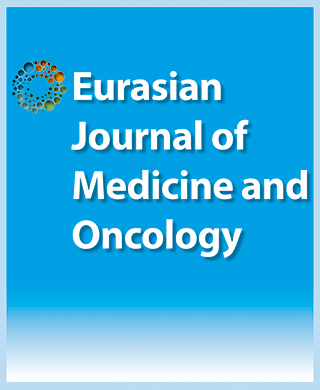

Familial Hereditary Prostate Cancer: Genetic, Screening, and Treatment Strategies
Maryam Aghasipour1, Fatemeh Asadian2, Seyed Alireza Dastgheib3, Ahmad Shirinzadeh-Dastgiri4, Mohammad Vakili-Ojarood5, Nima Narimani6, Mohammad Mehdi Atarod6, Seyed Masoud Haghighikian4, Maedeh Barahman7, Ali Masoudi8, Amirmasoud Shiri9, Kazem Aghili10, Hossein Neamatzadeh111Department of Cancer Biology, University of Cincinnati Faculty of Medicine, Ohio, USA, 2Department of Medical Laboratory Sciences, Shiraz University of Medical Sciences Faculty of Paramedical Science, Shiraz, Iran, 3Department of Medical Genetics, Shiraz University of Medical Sciences Faculty of Medicine, Shiraz, Iran, 4Department of Surgery, Iran University of Medical Sciences Faculty of Medicine, Tehran, Iran, 5Department of Surgery, Ardabil University of Medical Sciences Faculty of Medicine, Ardabil, Iran, 6Department of Urology, Iran University of Medical Sciences Faculty of Medicine, Tehran, Iran, 7Department of Radiation Oncology, Firoozgar Clinical Research Development Center, Iran University of Medical Sciences, Tehran, Iran, 8General Practitioner, Shahid Sadoughi University of Medical Sciences, Yazd, Iran, 9General Practitioner, Shiraz University of Medical Sciences, Shiraz, Iran, 10Department of Radiology, Shahid Sadoughi University of Medical Sciences, Yazd, Iran, 11Mother and Newborn Health Research Center, Shahid Sadoughi University of Medical Sciences, Yazd, Iran,
Genetic testing for prostate cancer (PrCa) has become more common in clinical practice due to the availability of tar geted therapies for specific subgroups based on genetic characteristics. This requires examining multiple genes to enable more precise treatment sequences. Identifying hereditary PrCa can guide treatment decisions and impact can cer screening for patients and their relatives. Some mutations discovered through genetic testing may be hereditary, thus requiring germline testing from normal tissue within the framework of clinical counseling. Germline testing can provide valuable information for PrCa patients in terms of treatment options and screening for other cancers in their relatives. Guidelines suggest genetic testing for all individuals with metastatic PrCa and also consider family history and tumor features for broader testing criteria. BRCA2, the gene most strongly linked to inherited PrCa, is associated with poorer survival outcomes when deficient. Targeted therapies such as poly-ADP ribose polymerase inhibitors and platinum-based chemotherapy have shown promise in treating cancer cells with BRCA1/2 deficiencies. The increasing role of genetic testing in PrCa indicates the necessity to expand its indications and consider treatment implications for metastatic PrCa patients, as well as cancer risk assessment for early-stage disease. The collaboration of experts in molecular pathology, bioinformatics, biology, and genetic counseling is vital for the evolving landscape of PrCa care. Keywords: Familial, genetic, prostate cancer, screening, treatment
Cite This Article
Aghasipour M, Asadian F, Dastgheib S, Shirinzadeh-Dastgiri A, Vakili-Ojarood M, Narimani N, et al. Familial Hereditary Prostate Cancer: Genetic, Screening, and Treatment Strategies. EJMO. 2024; 8(3): 250-266
Corresponding Author: Fatemeh Asadian



